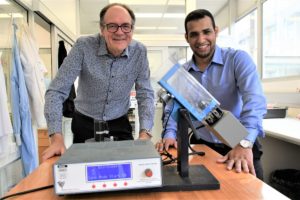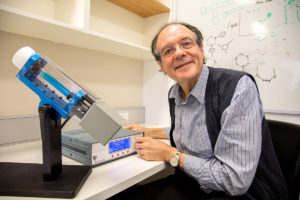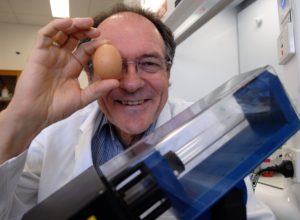
Leading students bolster best research
Flinders University’s most innovative research is being greatly assisted by the input of leading students undertaking Higher Degrees by Research – helping to further the application […]

Flinders University’s most innovative research is being greatly assisted by the input of leading students undertaking Higher Degrees by Research – helping to further the application […]

Commercial manufacturing of one of the world’s strongest materials has taken a decisive step forward with SA-based nano-science company 2D Fluidics filing another PCT Patent application […]

Flinders University Professor Colin Raston’s contribution to innovation in chemistry has seen him elected as a Fellow of the peak Australian Academy of Science. The Fellowship, […]

The future of improved biomarkers is looking brighter as Flinders University researchers shine a laser light on promising new ‘green’ compounds for medical applications. Streamlining production […]
Better production of clean biofuels, archaeology secrets of ancient Australia and insights from insect vision for road safety are among Flinders University research projects to receive federal ARC funding.
Enzymes can now work up to 16 times faster thanks to ‘paradigm shifting’ technology developed between Flinders and University of California Irvine.
The leading international research publisher, Nature, has named Flinders University in its 2016 ‘Rising Stars’ in the Asia-Pacific.
Flinders University’s world first precision-cut carbon nanotubes are set to transform the world’s medical and digital technologies.
When Flinders University’s Professor Colin Raston unboiled an egg earlier this year with his ‘Vortex Fluidic Device’, in a feat previously considered impossible by science, he made TV screens and front pages all over the world.